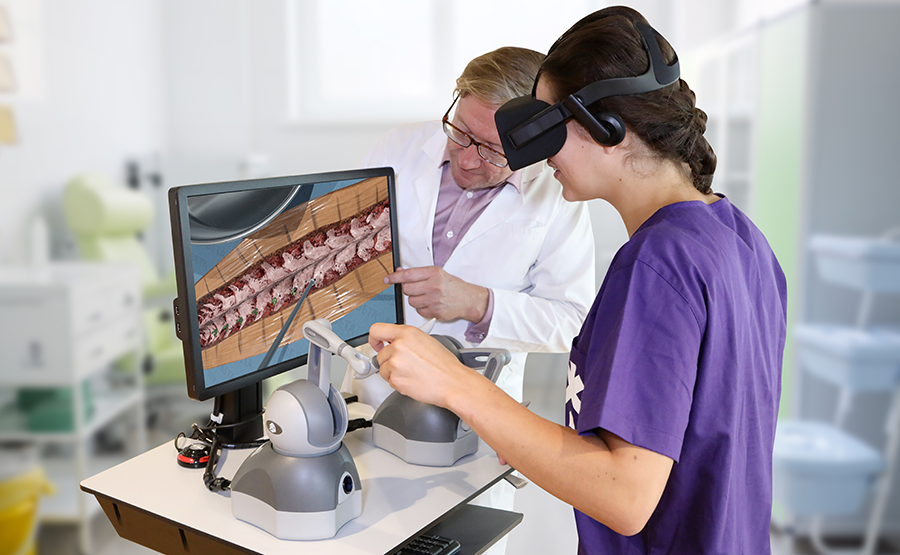Not too long ago, if you wanted to become a surgeon you had to read a load of books and then one day for the practical test, you had to grab a scalpel and perform operation. But, now one company is using interactive virtual reality platform that lets surgeons and trainees virtually see and feel what it’s like to perform specific operations.
Read more Borns, AI-Powered Minimally Invasive Surgery Has Huge Prospects in Healthcare
London-based FundamentalVR has launched its new software platform, Fundamental Surgery, that combines VR with haptic sensors. The platform gives users physical feedback simulating the feel of performing an operation, reports MobiHealthNews.
“Our mission is to democratize surgical training by placing safe, affordable, and authentic simulations within arm’s reach of every surgeon in the world,” said Richard Vincent, founder and CEO of FundamentalVR. “With the help of some of the top minds in medicine, as well some of the most advanced VR haptic programmers, we have created a solution that can be deployed anywhere — with limited investment — to allow surgeons to learn and hone their skills over and over again in a safe and controlled environment.”
Haptic feedback or “haptics” is when technology uses vibration or physical resistance to engage your sense of touch. The most common example would be your phone’s vibrating function, which buzzes to let you know when a friend is calling. But in virtual reality, haptic feedback does much more than just adding a physical dimension to the simulated world.
FundamentalVR’s technology allows you to feel the tip of the knife bouncing off each vertebra when you run your VR scalpel up and down a VR spine. It may not be a seamless experience, but it is definitely much more immersive than operating on empty air.
Schools or hospitals, who want to run the software on PCs or laptops will need a VR headset and two haptic arm devices. FundamentalVR’s SHIE software works with the haptic devices to give the user the sense of touch during surgery. The technology was designed to give users different physical feedback, such as what bone or skin feels like.
Read more Virtual Reality Help Kids Overcome Fear of Immunization
Although, the technology currently has an orthopedic focus, the company plans to expand the lens to include general surgery, laparoscopic, cardiovascular, and otolaryngology experiences.
The University of Nebraska Medical Center has decided to take advantage of the platform and announced its plans to build a new $119 million facility meant to help physicians and nurses train for next-generation care using VR and augmented reality tools.










